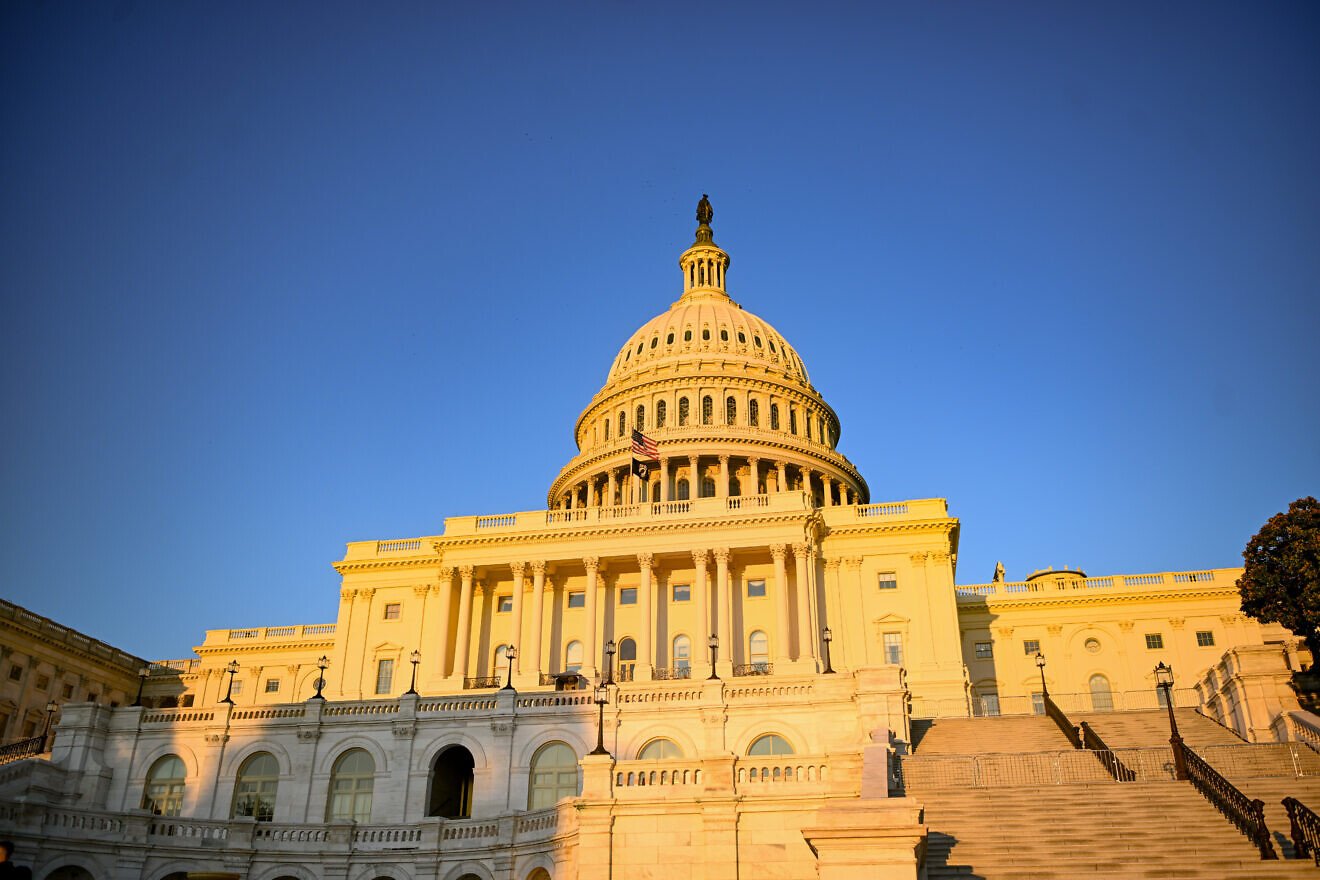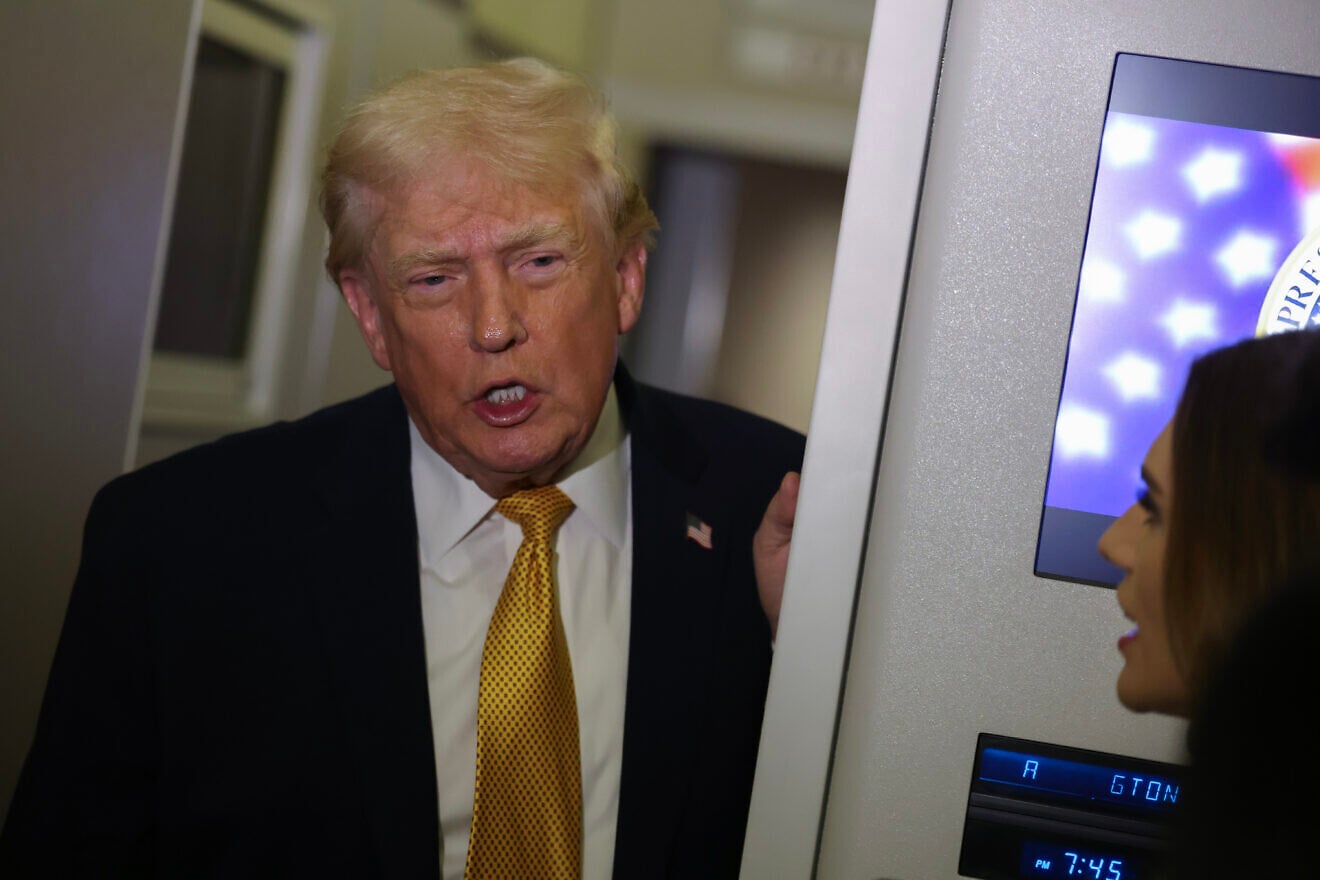by Jerry Dunleavy
China may be promoting astroturfing far-left protests against Maduro's capture, through a financial network in league with infamous radical-left financier and multi-millionaire Neville Roy Singham.
Chinese state-run propaganda outlets are promoting U.S. protests against the Trump Administration’s arrest of Venezuelan strongman Nicolas Maduro. The protests appear to be organized by a Chinese Communist Party-linked financial network in the United States.
After this weekend’s U.S. military-led operation capturing Venezuela’s leader and sending him to the U.S. to be prosecuted by the Justice Department, street protests opposing Maduro’s arrest were quickly organized in New York City and elsewhere by the Marxist revolutionary group known as The People’s Forum, the far-left anti-war group Code Pink, the leftist Act Now to Stop War and End Racism (ANSWER) Coalition, and the Party for Socialism and Liberation (PSL).
Just the News previously reported on how these and other radical activist groups have leadership links or financial ties to a funding network backed by wealthy Marxist businessman Neville Roy Singham, who himself has connections to the CCP.
CCP-associated outlets promote support for Maduro
Media outlets such as Xinhua News Agency, China Daily, China Global Television Network (CGTN), and the Global Times — all directly run by the CCP — in turn promoted the pro-Maduro protests organized by these same groups, as the Chinese government repeatedly denounced the actions taken by President Donald Trump against the close Chinese ally in Latin America.
China Daily operates under the thumb of the Chinese government’s State Council Information Office (SCIO). The State Department, during the first Trump Administration, also designated both CGTN and the Global Times as “foreign missions” of the Chinese government due to their Chinese state control.
The Chinese Embassy in the U.S. did not immediately respond to a request for comment. The People’s Forum, the ANSWER Coalition, Code Pink, and PSL did not immediately respond to requests for comment.
U.S. Rep: "China was buddying up to Venezuela"
The Justice Department indicted Maduro in the Southern District of New York as long ago as 2020, charging him with narco-terrorism, corruption, and drug trafficking. Maduro was subject to a superseding indictment unsealed over the last weekend, arguing that he used his “illegally obtained authority and the institutions he corroded to transport thousands of tons of cocaine to the United States” amongst other crimes.
“The United States armed forces conducted an extraordinary military operation in the capital of Venezuela,” President Trump said during a press conference on Saturday. “It was a force against a heavily-fortified military fortress in the heart of Caracas to bring outlaw military dictator Nicolás Maduro to justice.”
“This is the Western Hemisphere. This is where we live — and we’re not going to allow the Western Hemisphere to be a base of operation for adversaries, competitors, and rivals of the United States,” Secretary of State Marco Rubio told NBC’s Meet the Press on Sunday.
Fred Fleitz, a former chief of staff to the National Security Council, told Just the News that Venezuela “has become a nexus for bad actors, and we know that the Chinese spent billions of dollars to get control of Venezuela's oil and to install two pro-China, corrupt, narco-presidents in the country.”
“China had a delegation in Venezuela the day before this took place. China was buddying up to Venezuela and wanted to continue to prop them up and to help them,” Rep. Nathaniel Moran, R-Texas, told Just the News. “Why? Because they want to isolate the United States and our influence around the world. We can't let that happen.”
CCP propaganda outlets promote astroturf Maduro arrest protests
Xinhua on Sunday published a story with a New York dateline, purportedly based upon on-the-ground reporting by a reporter stating that “hundreds of people took to the streets of Manhattan on Saturday to protest against the U.S. military operation that led to the capture of Venezuelan President Nicolás Maduro” and that “the march was part of nationwide ‘No War on Venezuela’ demonstrations in more than 100 U.S. cities, including Washington, Boston, Los Angeles, Atlanta, Chicago and Miami.”
The outlet quoted a “middle-aged New Yorker in the march” named “Karen” who said that “this war is not about drugs, it is about Venezuela's oil” as well as a “college student from Pakistan” named “Hassan” who said that “this is quite nakedly about oil and natural resources."
China Daily republished a Xinhua article on the protests — stating on X that “hundreds of people took to the streets of Manhattan on Saturday to protest against the #US military operation that led to the capture of Venezuelan President Nicolas #Maduro” — and featured a picture of a sign from PSL.
Xinhua specifically named the ANSWER Coalition as “one of the organizers” which “condemned the latest U.S. bombing of Caracas and the capture of Maduro.”
CGTN also cited Xinhua when stating that “protesters gathered in major U.S. cities — including Washington, D.C., New York and Boston — to denounce the U.S. military attack on #Venezuela and oppose the use of force to subvert foreign governments.” The article also featured a protest picture which included a sign from PSL. The Global Times also shared footage featuring PSL signage.
Chinese state-run media has promoted the Singham network's protest efforts in the recent past. Xinhua highlighted the role of the People’s Forum in anti-ICE protests last summer. CGTN, China Daily, and Xinhua all pointed to the ANSWER Coalition’s role in protesting U.S. military strikes against Iranian nuclear facilities last year.
Singham network activates to call arrest of Maduro a "war crime"
The Singham-affiliated groups swiftly swung into high gear to activate protesters quickly in the wake of the U.S. capture of Maduro this weekend, as first detailed by Fox News.
Manolo De Los Santos, the leader of the People’s Forum, early Saturday morning tweeted that “Trump has launched an illegal bombing campaign. Families, children, people sleeping in their homes across Caracas are under attack. … This is a war crime. Stop the bombing of Venezuela!”
Code Pink shared the video posted by Santos and added: “This is a war crime. The terrorist United States has bombed Venezuela because it dared to defy its imperialist regime. We stand with the Venezuelan people.”
The People’s Forum on Saturday tweeted, “NYC EMERGENCY PROTEST: No war on Venezuela! Stop the bombings!” as it promoted a protest in Times Square. The ANSWER Coalition similarly tweeted on Saturday about an “EMERGENCY DAY OF ACTION: No war on Venezuela! Stop the bombings!”
PSL shared the Answer Coalition's post, tweeting, “Stop the bombings — No U.S. war on Venezuela! Money for people’s needs, not the war machine! Find an action near you TODAY.”
Code Pink, the same day, shared a “Hands Off Venezuela” graphic, tweeting, “History shows that wars can be stopped when people force them into the open. That is why we are calling for immediate, visible, nationwide action. Take to the streets. Organize emergency protests.”
The People’s Forum on Saturday tweeted out a poster graphic saying, “No To Trump’s Illegal Kidnapping of Nicolás Maduro. Protest at Metropolitan Detention Center.” The forum continued: “Early this morning, Trump bombed Venezuela and illegally kidnapped its President, declaring that the U.S. would 'run' the country and sell its oil. Now, President Nicolás Maduro is being held at the Metropolitan Detention Center in Brooklyn. ... We will show up as people in the United States to make one thing unmistakably clear: we will not accept the kidnapping of the Presidents of sovereign countries in our name.”
The forum added on Saturday that “we are building a new massive anti-war movement. This is just the beginning! NO WAR ON VENEZUELA!” The forum was sharing a video of a protest speech by ANSWER Coalition leader Brian Becker, who claimed that “the kidnapping of Maduro is an imperialist war for a capitalist class.”
Neville “Comrade” Singham and his on-line bubble-network
Singham’s links to these far-left groups are not surprising — the wealthy tech businessman is a true and long-standing Marxist.
“For months we’ve been the target of a campaign that alleges our funding comes from ‘dark money.’ A few years ago we met Roy Singham, a Marxist comrade who sold his company & donated most of his wealth to non-profits that focus on political education, culture, & internationalism,” the People’s Forum tweeted in December 2021.
Singham married Jodie Evans, the co-founder of the radical left-wing group Code Pink, in 2017. Her group touts itself as antiwar and has become increasingly pro-China in recent years.
The New York Times reported that Singham works in Shanghai, that his efforts there are linked to the CCP, and that he has attended at least one CCP workshop on promoting the party globally. The Times also said that Singham shares offices with a Chinese media company called Maku Group. The Chinese group’s “About Us” page — which has since been deleted but which was archived by the Wayback Machine in 2023 — says the goal of the company is to promote a positive vision of China worldwide.
Singham also wrote that he had served on the Central Committee of the League of Revolutionary Black Workers. The league, according to the Marxists Internet Archive, “played a key role in inspiring the Black Liberation Movement and spreading Marxist-Leninist ideas among Black workers and workers in general.” Singham reportedly worked as a “strategic technical consultant” with Chinese telecom giant Huawei from 2001 to 2008, according to New Lines Magazine.
The Free Beacon reported that key leaders of the People’s Forum “serve in top positions at Singham's Justice and Education Fund.” The outlet also reported that the network run by Singham is also behind BreakThrough Media and Dongsheng News, who both push pro-China narratives and whose content is regularly reshared by the forum.
The Free Press reported that Singham and Evans “have donated over $20.4 million to The People’s Forum from 2017 to 2022 through a series of shell organizations and donor advisory groups — accounting for nearly all of the group’s funding.” The outlet reported that the pro-China “No Cold War” group was also linked to Singham’s network.
Then-senator and now Secretary of State Marco Rubio told the Biden Justice Department that “it appears that organizations tied to Neville Roy Singham, a U.S. citizen, have been receiving direction from the CCP.”
“I categorically deny and repudiate any suggestion that I am a member of, work for, take orders from, or follow instructions of any political party or government or their representatives,” Singham told the New York Times in 2023. “I am solely guided by my beliefs, which are my long-held personal views.”
Singham’s network plans to carry Maduro protests into the future
The far-left outlet BreakThrough News held a livestream on Sunday organized by the ANSWER Coalition titled, “Mass Public Webinar: Stop the War on Venezuela! Build the Antiwar Movement Nationwide!” The livestream aimed to keep the far-left Maduro protests going into the future.
The Network Contagion Research Institute, the Heritage Foundation, the Daily Beast, and the Free Beacon have all pointed to the links between BreakThrough Media and Singham’s network. The tax forms for BreakThrough Media show that many of the group’s top leaders are tied to PSL as well. Network Contagion also reported PSL founding member Ben Becker as having founded BreakThrough in 2020.
BreakThrough Media did not respond to a request for comment by presstime.
The livestream featured Manolo De Los Santos, leader of the People’s Forum, who took the opportunity to praise former Venezuelan socialist strongman Hugo Chavez and to attack two decades of U.S. foreign policy toward Venezuela.
De Los Santos added: “We are the ones who actually have to stop Trump in his tracks. We are the ones who actually have to save humanity from the slide toward fascist rule that is taking place in this country.”
Claudia De La Cruz, now the executive director of the Interreligious Foundation for Community Organization's Pastors for Peace, condemned the “kidnapping” of Maduro. The organization describes itself as rooted in "liberation theology."
ANSWER Coalition: "If we mobilize this public opinion, we can defeat the entire Trump program“
"We need to be clear on who our enemies are,” she also said. “Our enemies are not the people of Venezuela. The truth is that those who deny us health care, deny us housing, dignified wages, and civil rights are our enemies, and they are not the Venezuelan people or their leadership.”
De La Cruz said in a 2024 interview about her campaign as the PSL nominee to be U.S. president that “I co-founded and co-directed […] the People’s Forum.” The forum says that De la Cruz “is a central committee member of The Party for Socialism and Liberation” and that “in 2018, she co-founded The People’s Forum.” De La Cruz is listed as a director at the forum in tax records.
Brian Becker, the national director of the ANSWER Coalition, said during the livestream that “I couldn’t help but be inspired by the earlier speakers. … If we act together, if we move together, if we realize how powerful we can be, we can win this battle.” He added: “If we mobilize this public opinion, we can win. If we mobilize this public opinion, we can defeat the entire Trump program — its war against working class families at home and its war against Venezuela and the other people in the global south.”
Ashik Siddique, the co-chair of the Democratic Socialists of America's (DSA) National Political Committee, spoke during the livestream with the words “Fight Facism Build Socialism” as his video background. He called the arrest of Maduro a “brazen act of imperialist aggression.” He contended, “We know that all our struggles are interconnected. We just won a massive victory in New York City … electing a socialist mayor.”
“This is the time to take action based on the power that we have and the resources that we have,” Siddique said. “We are going to be escalating with all of you” — presumably referring to the Singham-linked groups on the webinar — “over the next few weeks […] We can’t leave any power on the table. In the heart of empire, we have a responsibility to people around the world to take whatever action is within our means to build working-class power and become strong enough to challenge this horrific status quo.”
Mamdani: "An act of war"
New York City Mayor Zohran Mamdani, like Ashik Siddique, a member of the DSA, had tweeted on Saturday that “I was briefed this morning on the U.S. military capture of Venezuelan President Nicolás Maduro and his wife, as well as their planned imprisonment in federal custody here in New York City.”
“Unilaterally attacking a sovereign nation is an act of war and a violation of federal and international law,” Mamdani said. “This blatant pursuit of regime change doesn’t just affect those abroad, it directly impacts New Yorkers, including tens of thousands of Venezuelans who call this city home. My focus is their safety and the safety of every New Yorker, and my administration will continue to monitor the situation and issue relevant guidance.”
It remains to be seen to what extent Mamdani will join his DSA brethren and the Marxist Singham network — openly, at least — in building support among the left to oppose or even obstruct the prosecution of Maduro.
Jerry Dunleavy
Source: https://justthenews.com/government/security/chinese-propaganda-outlets-promote-maduro-arrest-protests-organized-ccp-linked









